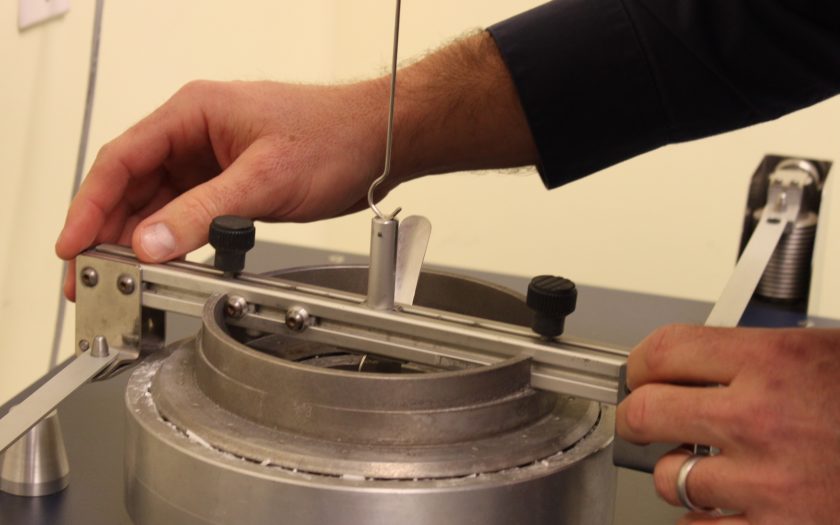
Understanding material flow behavior is crucial in industries dealing with powders and bulk solids. Whether it’s pharmaceuticals, food processing, or construction materials, ensuring that powders flow predictably through equipment is key to optimizing production. The ring shear tester is a specialized device designed to provide precise insights into the flow properties of powders and other bulk materials. By measuring properties such as internal and wall friction, cohesion, and compressibility, it helps industries overcome challenges related to material handling and storage.
Key Features of the Ring Shear Tester
The ring shear tester stands out because of its ability to simulate real-world conditions that powders and bulk solids experience during processing. Here’s a look at some of its outstanding features:
- Computer-Controlled Precision: The ring shear tester is equipped with computer controls that allow it to measure various flow properties with high accuracy. This includes cohesive strength (how tightly particles stick together), internal friction (particle-to-particle interaction), wall friction (interaction between particles and a container’s walls), and compressibility (relationship between bulk density and consolidating pressure). This level of detail is crucial for understanding how materials will behave in different situations, such as storage or transport.
- Versatility in Material Testing: One of the major advantages of the ring shear tester is its capability to handle a wide range of materials. Whether dealing with free-flowing powders or bulk solids with poor flow properties, the device can accurately assess the material’s behavior. It is also equipped to test materials that require large shear deformation or contain large particles.
- Measuring Attrition: In addition to flow properties, the ring shear tester can also measure the attrition (friability) of materials like granules, flakes, or pellets. These properties are critical when assessing how much a material might break down during processing, which could affect product quality and yield.
Applications of Ring Shear Testing
The data provided by a ring shear tester is invaluable across several key industrial applications:
- Product Development: During the development phase of a new product, it’s essential to understand how powders and bulk solids will behave during processing. The ring shear tester provides the data necessary to design processes that work with a specific material’s flow properties, ensuring smoother production and fewer material handling issues.
- Quality Control: Maintaining consistency in production is critical in many industries. The ring shear tester can be used to monitor material properties over time, helping companies ensure that their products meet quality standards and perform as expected in the marketplace.
- Troubleshooting Processing Problems: When issues arise with the flow of powders or bulk materials, the ring shear tester can identify the root cause. For example, if a powder is prone to caking (where particles stick together and form solid lumps), the tester can provide insights into why this is happening, allowing manufacturers to make informed adjustments.
- Hopper Design Optimization: Hoppers are critical in the storage and handling of powders and bulk solids, but poor design can lead to issues like bridging or rat-holing, where the material clogs or flows unevenly. The ring shear tester helps design engineers determine the correct hopper shape and size to avoid such problems, ensuring mass flow and efficient material handling.
Advantages of Using a Ring Shear Tester
Using a ring shear tester offers several distinct benefits:
- Industry Standard: The ring shear tester is recognized as one of the only internationally acknowledged devices for measuring the flow properties of bulk solids. (ASTM D6773) This makes it an essential tool for any industry dealing with powders and bulk solids.
- Ease of Use: Despite its technical capabilities, the ring shear tester is designed to be user-friendly. Operators require minimal training to use the machine, making it accessible for routine testing and analysis.
- Versatility: Whether dealing with fine powders or coarse materials, the ring shear tester can handle them all. Its ability to test a wide variety of materials makes it a valuable tool for industries with diverse product lines.
Models of the Ring Shear Tester
The ring shear tester comes in two primary models, each tailored to meet specific industry needs:
1. RST-XS.s (“Small”)
- This bench-top model has a cell volume of 30 ml, making it ideal for industries like pharmaceuticals where sample sizes may be limited or the material is expensive to produce.
- Its compact design allows it to be easily integrated into lab settings, where space is often at a premium.
2. RST-Mk-II (“Standard”)
- The standard model has a larger 900 ml cell volume and is typically used in industries where larger sample sizes are available.
- As a floor-standing unit, it is suited for heavier-duty applications where extensive testing is necessary.
Both models are equipped with the same computer-controlled features, ensuring that users get the same high-quality data regardless of the unit size.
Closing Thoughts
The ring shear tester is an indispensable tool for industries that rely on precise knowledge of powder and bulk material flow properties. Whether it’s during product development, quality control, or troubleshooting, the data provided by this device allows for optimized material handling and equipment design. Its ability to measure properties such as cohesion, friction, and compressibility allows equipment to be designed or redesigned so that materials behave predictably under real-world operating conditions, reducing downtime and improving efficiency.
As a recognized standard in the industry, the ring shear tester offers an easy-to-use, versatile, and highly accurate solution to the challenges of powder and bulk material flow. Its application across various industries—from pharmaceuticals to mining—underscores its importance as a key instrument in modern manufacturing and process optimization.
If you’re looking to enhance your material handling processes or need precise data on the flow properties of your powders and bulk solids, investing in a ring shear tester is a critical step toward efficiency and reliability.




